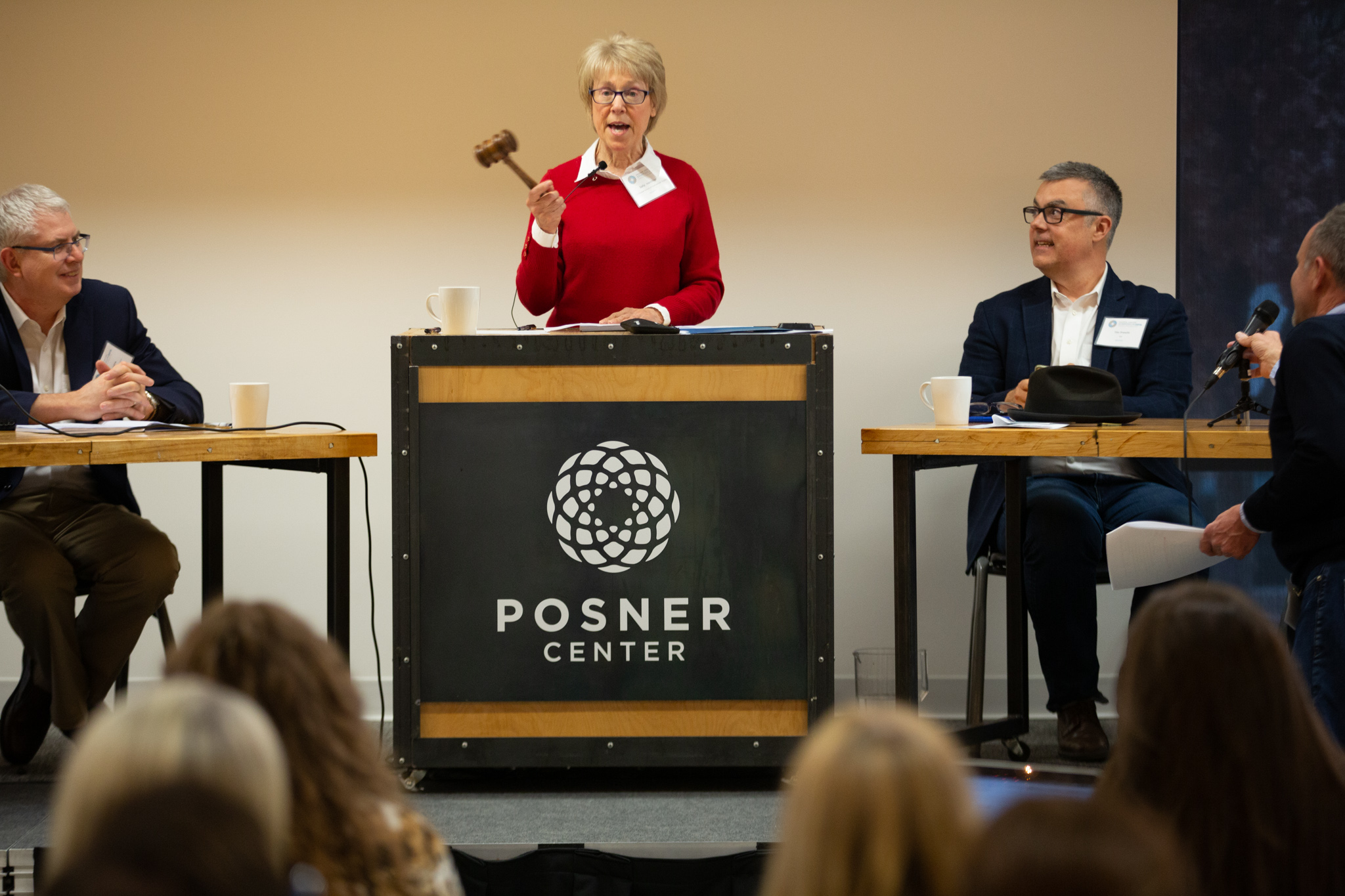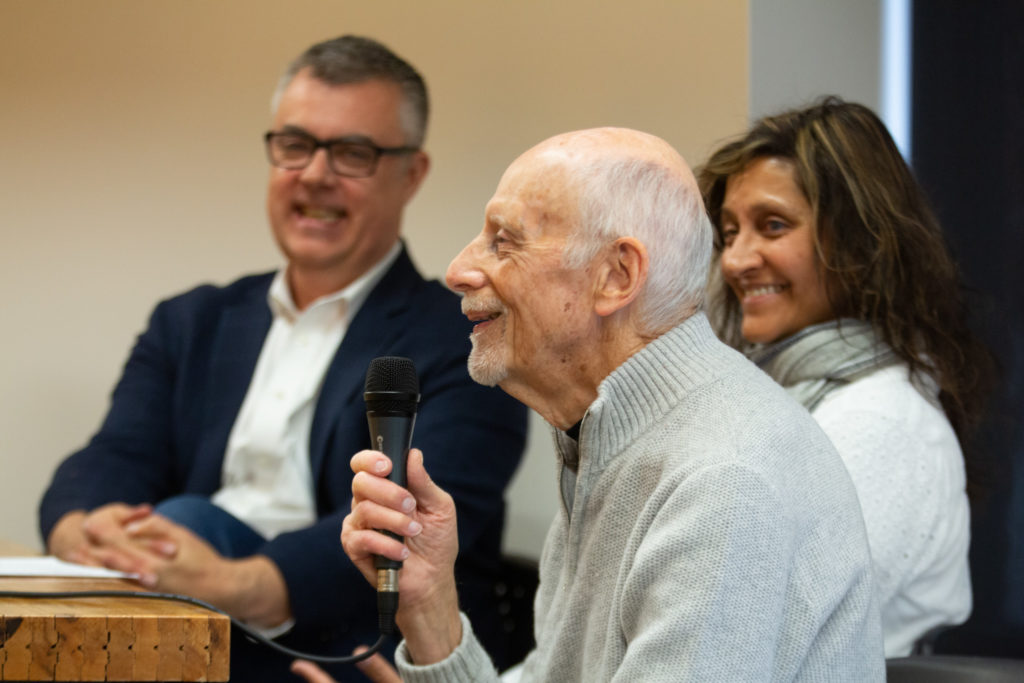Symposium 2019 Recap

It can be very uncomfortable to question the very soul and guiding principle of the Posner Center Community, but we did just that at the final event of our first annual Symposium.
The Oxford-style debate pitted two teams against one another as they argued for and against the position that collaboration is a best practice in international development.
The debate featured panelists with deep experience leading global development programs, public-private partnerships, and development research. Tom Farer (Korbel School of International Studies), Neena Jain (emBOLDen Alliances), Marty Kooistra (Housing Development Consortium), Cathy Leslie (Engineers Without Borders USA), Tim Prewitt (iDE), and Diana Walker (Factor Impact) brought their experience to bear, each of them arguing for the position to which they’d been assigned.*
Since vigorous (and raucous) audience participation is a key component of an Oxford-style debate, Debate Chair Sally Hamilton (Korbel School of International Studies) polled everyone on where they stood on the topic, eliciting loud cheers for the Pro side and a few unenthusiastic claps for the Con side. The Con team had some work to do with this collaboration-enthusiastic crowd.
Working from an early deficit, the Con team opened by persuasively establishing the downsides and drawbacks of collaboration. They observed the slowness of process-oriented NGOs, positing that business and market-based approaches are much more effective at delivering impact, and doing so at scale. The team also highlighted the concept of burden within collaboration, a burden that very often can fall to women, locals, and people of color.
The Pro side opened with hard-hitting statements like, “Success should be with community not for community,” that summed up the reasons the audience began by believing collaboration is a best practice in global development.
After the opening statements, the teams engaged in two rounds of rebuttals, with both sides supporting their arguments with case studies from their own work and the broader field of humanitarian aid and development.
The Pro side drew on the example of the response to Hurricane Maria’s devastation of the island of Dominica, which highlighted the number and diversity of actors, who, when working under shared priorities and a clear division of labor, produced tangible outcomes that no actors could have produced in isolation.

In closing arguments, the Con side highlighted the failures of collaboration, using the example of aid delivery to Somalia. Direct, unilateral assistance from the US was much more successful than attempts to build coalitions and act jointly which cost time, and, arguably, lives. This was a core argument of the Con team: that aid and development often requires direct, focused, and efficient action that collaboration can stall.
In their closing, the Pro team stressed that as a best practice in international development, collaborators must be focused on common goals, or it’s not collaboration at all. They acknowledged the difficulty of collaboration, as it requires trust and shared risk-taking, but also has the promise of greater reward than non-collaborative efforts.
At the end of the debate, the audience had the chance to jump into the fray and ask their pointed questions to the debaters.
So, is collaboration a best practice in international development?
The Chair polled the crowd at the end to find the debate ended in a tie, a nod to just how challenging creating impact through collaboration can be. The Posner Community is clear-eyed about the challenges and simultaneously driven to continue to build the evidence-base and skills for leading high-impact collaborative development.
*Debate team assignments were prescribed. The views, thoughts, and opinions expressed during the debate did not necessarily reflect the individuals’ personal or professional perspectives.
